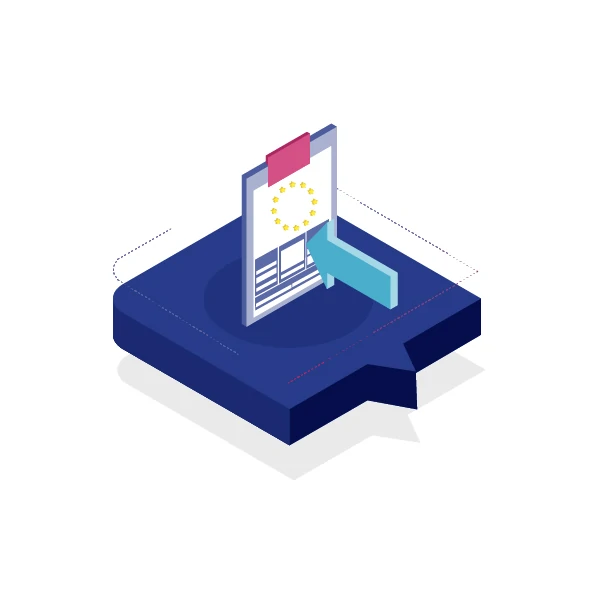Understanding Horizon Europe
The first step in applying for Horizon Europe funding as a health researcher is understanding the programme and its aims, who can apply, and where health research fits into the picture.

The first step in applying for Horizon Europe funding as a health researcher is understanding the programme and its aims, who can apply, and where health research fits into the picture.

Horizon Europe is the main EU funding programme for Research and Innovation (R&I), running from 2021 to 2027. It has a total budget of €95.5 billion, of which €8.246 billion is available for health research. It is designed to facilitate collaboration between researchers across Europe and beyond, with the aim of strengthening the impact of R&I to develop, support and implement EU policies while tackling global challenges.
Horizon Europe funding is available to researchers from all kinds of organisations, such as universities, research institutes, charities or civic organisations, policy makers and regulators, and industry, including small-and medium-sized enterprises (SMEs). Organisations need to meet the following criteria to be eligible for funding:
Organisations from other countries can participate in Horizon Europe but are not eligible for funding. They could receive exceptional funding, if their country is explicitly identified in the Horizon Europe Work Programme and call for proposals, or if their participation is essential for implementing the project. Under the Health Work Programme, and in recognition of the opening of the US National Institutes of Health’s programmes to European researchers, organisations in the USA are eligible to receive EU funding.
Full details on eligibility criteria are provided in the General Annexes of the Horizon Europe Work Programme which can be downloaded from the Horizon Europe section of the HRB website.
Horizon Europe funding is awarded under three distinct categories or ‘pillars’, with health research mainly falling under Pillar 2 – ‘Global Challenges and European Industrial Competitiveness’. View an overview of the pillar structure of Horizon Europe here.
Pillar 2 sets out six thematic areas – known as ‘clusters’ – related to societal challenges such as climate, security and health.
Cluster 1 is the Health Cluster, and it addresses six key objectives or ‘destinations’:
Read more about the Health Cluster aims, download the current work programme from our website, and explore the Frequently Asked Questions submitted to the EU Funding & Tenders portal.
Pillar 2 funding also addresses a number of EU-wide ‘missions’. Missions are intended to tackle major societal challenges by combining R&I with new forms of governance and collaboration, and engaging citizens. Of relevance for health researchers is the Cancer Mission, which aims to provide a better understanding of cancer, allow for earlier diagnosis, optimise treatment, and improve cancer patients’ quality of life during and beyond their cancer treatment.
Read more about the Cancer Mission aims and view related European Commission documents.
Download the current Missions Work Programme from the HRB website here.
Within the Health Cluster under Pillar 2, funding is also available as part of EU Partnerships. There are three types of EU partnerships, institutional, co-programmed or co-funded.
Ireland-based researchers can apply for funding for the following institutionalised partnerships:
Ireland-based researchers can apply for funding call under EU co-funded partnerships. This funding is available through translational calls. Find open transnational call opportunities in Irleand here. Some of those include:
Health research can also be funded under other pillars of Horizon Europe, such as:
Your NCP is available to answer any questions you might have on Horizon Europe’s scope and aims, advise on eligibility criteria, technical issues and EU funding rules, or help you figure out which funding instrument is most suitable for your research area. The NCP organises information events on Horizon Europe Health throughout the year, both online and locally at research institutions such as universities.
Your NCP can also direct you to colleagues within the National Support Network who support other parts of Horizon Europe, or to other colleagues who support other relevant EU Programmes such as EU4 Health programme.
Want to know more? Contact your HRB Health NCP.